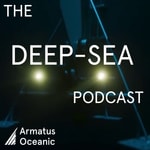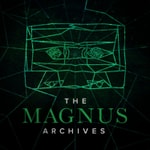The Deep-Sea Podcast – Détails, épisodes et analyse
Détails du podcast
Informations techniques et générales issues du flux RSS du podcast.

The Deep-Sea Podcast
Thomas Linley
Fréquence : 1 épisode/15j. Total Éps: 126

Classements récents
Dernières positions dans les classements Apple Podcasts et Spotify.
Apple Podcasts
🇬🇧 Grande Bretagne - lifeSciences
31/07/2025#57🇩🇪 Allemagne - lifeSciences
31/07/2025#50🇺🇸 États-Unis - lifeSciences
31/07/2025#42🇫🇷 France - lifeSciences
31/07/2025#18🇬🇧 Grande Bretagne - lifeSciences
30/07/2025#48🇩🇪 Allemagne - lifeSciences
30/07/2025#40🇺🇸 États-Unis - lifeSciences
30/07/2025#75🇫🇷 France - lifeSciences
30/07/2025#16🇬🇧 Grande Bretagne - lifeSciences
29/07/2025#27🇩🇪 Allemagne - lifeSciences
29/07/2025#33
Spotify
Aucun classement récent disponible
Liens partagés entre épisodes et podcasts
Liens présents dans les descriptions d'épisodes et autres podcasts les utilisant également.
See all- https://www.zapsplat.com
3772 partages
- https://otter.ai
333 partages
- https://twitter.com/Hadalbloke
92 partages
- https://twitter.com/ThomLinley
92 partages
- https://twitter.com/ArmatusO
84 partages
- https://www.instagram.com/armatusoceanic
85 partages
- https://www.instagram.com/deepsea_podcast
84 partages
- https://www.instagram.com/geeinthesea
69 partages
Qualité et score du flux RSS
Évaluation technique de la qualité et de la structure du flux RSS.
See allScore global : 52%
Historique des publications
Répartition mensuelle des publications d'épisodes au fil des années.
PRESSURISED: 049 - Chimaeras with Brit Finucci
vendredi 9 août 2024 • Durée 28:08
Our short and to the point PRESSURISED version of episode 49. If you don't have time for the full episode and want to get right to the science without any of our waffle, this is the place to be!
Read the show notes and find the full episode here:
https://www.armatusoceanic.com/podcast/049-chimaera
To finish off our cartilaginous fish mini-series, we’re getting into our personal favourite: the chimera.These little oddballs are closely related to sharks and rays but often go unmentioned. They are full of intriguing quirks, from lacking a stomach to possessing a reproductive appendage on their head! We speak with Dr Brit Finucci from NIWA, a lover of deep water sharks and champion kicker of heads (she is also a competitive Muay Thai fighter) all about these fascinating fishes and why they are so interesting.
Thanks again for tuning in, we’ll deep-see you next time!
------------------------------------------------------------------
Support us by becoming a patron and joining our deep-sea community!
We want to say a huge thank you to those patrons who have already pledged to support us:
Monty Priede | Audrey Gathright
------------------------------------------------------------------
NEW MERCH DESIGNSCheck out our podcast merch here! Which still includes Alan’s beloved apron.
------------------------------------------------------------------
GET IN TOUCHEmail: podcast@armatusoceanic.com
Twitter: @DeepSeaPod, @ArmatusO
Facebook: DeepSeaPodcast, ArmatusOceanic
Instagram: @deepsea_podcast, @armatusoceanic
Keep up with the team on social media
Twitter:
Alan - @Hadalbloke
Thom - @ThomLinley
Georgia - @geeinthesea
Instagram:
Georgia - @geeinthesea
Thom - @thom.linley
Read the show notes and find out more about us at:
------------------------------------------------------------------
FURTHER RESOURCES ResourcesFishing for oil and meat drives irreversible defaunation of deepwater sharks and rays
Brit Finucci - Fisheries scientist at NIWA, New Zealand
CreditsTheme – Hadal Zone Express by Märvel
Logo image - The Deep-Sea Podcast: PRESSURISED Logo
Edited by - Georgia Wells
#deepsea #deepocean #chimera #chimaera #ghostshark #rabbitfish #shark #podcast #science #marinebiology #alanjamieson #thomaslinley #britfinucci #sharkweek #NIWA #interview #scicomm
Chimaeras with Brit Finucci
Épisode 49
vendredi 2 août 2024 • Durée 01:07:12
These little oddballs are closely related to sharks and rays but often go unmentioned. They are full of intriguing quirks, from lacking a stomach to possessing a reproductive appendage on their head! We speak with Dr Brit Finucci from NIWA, a lover of deep water sharks and champion kicker of heads (she is also a competitive Muay Thai fighter) all about these fascinating fishes and why they are so interesting.
We also speak with Leo Richards from Natural World Facts about his journey into making deep sea documentaries. If you have ever searched for deep-sea videos online, then you will have definitely come across Leo’s content, as his captivating way of sharing the deep-sea has reached millions of people.
Talking about high-quality content, The Professor has been joined offshore by a team of filmmakers, ready to capture the latest in hadal research. So expect some highly professional footage to come out in the next few weeks!
Finally, Andrew talks us through some physical features of the Chimera, including its pretty hefty defensive spine and some gnarly stories about things getting impaled.
Thanks again for tuning in, we’ll deep-see you next time!
------------------------------------------------------------------
Support us by becoming a patron and joining our deep-sea community!
We want to say a huge thank you to those patrons who have already pledged to support us:
Monty Priede | Audrey Gathright
------------------------------------------------------------------
NEW MERCH DESIGNSCheck out our podcast merch here! Which still includes Alan’s beloved apron.
------------------------------------------------------------------
GET IN TOUCHEmail: podcast@armatusoceanic.com
Twitter: @DeepSeaPod, @ArmatusO
Facebook: DeepSeaPodcast, ArmatusOceanic
Instagram: @deepsea_podcast, @armatusoceanic
Keep up with the team on social media
Twitter:
Alan - @Hadalbloke
Thom - @ThomLinley
Georgia - @geeinthesea
Instagram:
Georgia - @geeinthesea
Thom - @thom.linley
Read the show notes and find out more about us at:
------------------------------------------------------------------
FURTHER RESOURCES NEWSSubmarine canyons in Australia
Fishing for oil and meat drives irreversible defaunation of deepwater sharks and rays
People mentioned
Brit Finucci - Fisheries scientist at NIWA, New Zealand
Leo Richards - Founder of Natural World Facts
Andrew Stewart - Curator of Fishes at Te Papa Museum, New Zealand
Isabella Liu - Illustrator inspired by the ocean
Meghan Jones - Artist inspired by the deep sea
CreditsTheme – Hadal Zone Express by Märvel
Logo image - Beauties and Wonders of Land and Sea (Published 1895)
Edited by - Georgia Wells
#deepsea #deepocean #chimera #chimaera #ghostshark #rabbitfish #shark #podcast #science #marinebiology #alanjamieson #thomaslinley #britfinucci #sharkweek #NIWA #interview #scicomm
PRESSURISED: 021 - Deep sea images and AI with Kakani Katija
vendredi 26 avril 2024 • Durée 28:07
Our short and to the point PRESSURISED version of episode 21. If you don't have time for the full episode and want to get right to the science without any of our waffle, this is the place to be!
Read the show notes and find the full episode here:
https://www.armatusoceanic.com/podcast/021-ai
We have often talked about how difficult it is the get data from the deep sea… but would you believe that the bottleneck to our understanding of the deep ocean, at least as far as visual data, is processing those images? Turning a picture of the deep sea into a list of species, habitat type, sediment type etc. is a time-consuming process that requires a wide range of skilled people.
Due to time/funding constrains a lot of valuable information is lost. A team looking at a specific question will have lots of information in their data that other teams could use.
A picture is worth a thousand data points.
We chat with Dr Kakani Katija, the co-founder of FathomNet, an open-source repository for labelled deep-sea imaging data. The platform is still in beta but it is hoped that it will allow scientists to easily and usefully share their amassed data in a single and easily searchable place.
But what about that processing bottleneck? The tech-savvy listener may have noticed that a massive collection of labelled image data is exactly the sort of thing you need to train a Machine Learning or Deep Learning algorithm. Can we automate a lot of the time-consuming image processing and let the experts focus on the new and unusual stuff? It’s at this cutting edge that things get exciting and we may be at the cusp of a marine science renaissance.
We also launch our podcast merch! Please do send in any pics of you wearing the merch. We find the idea of real people in the actual world wearing this so surreal!
Feel free to get in touch with us with questions or you own tales from the high seas on:
podcast@armatusoceanic.com
We are also on
Twitter: @ArmatusO
Facebook: ArmatusOceanic
Instagram: @armatusoceanic
Read the show notes and find out more about us at:
Glossary
Artificial Intelligence (AI) – A science dedicated to making machines think in an intelligent way, mirroring a biological brain.
Data pipeline – A path that raw data follows to become useful information.
Deep Learning – a more complex subset of ML that mirrors the way a brain works
Machine Learning (ML) – computers learning to perform a task without being explicitly programmed to do so
ML/AI model or algorithm – A model that has been trained on real data and can now process new data itself.
Online Repository – A database stored online so that people can access it from anywhere
Open Source – A publicly accessible design that people can freely repurpose and adapt.
Visual data – photos or video as a form of scientific data
Links
Kakani’s Twitter
FathomNet goodies
The FathomNet website – have an explore of the labelled deep-sea critter data
FathomNet GitHub – take a peek under the hood or even get involved
FathomNet articles with tutorials/explanations
NOAA Science Seminar, 8 March 2022 1200-1300 PST (UTC-8)
FathomNet Workshop, 31 March & 1 April 2022 0800-1100 PST (UTC-8)
Internet of Elephants (gamifying processing camera-trap data)
Beyond Blue (game)
Credits
Theme – Hadal Zone Express by Märvel
Logo image - PRESSURISED logo
003 - Aesthetics of the deep sea with artist Alex Gould
Épisode 3
jeudi 3 septembre 2020 • Durée 01:04:42
Can we use art to help people engage with the deep sea? We stop trying to explain things and let artist Alex Gould (alexandragould.co.uk) help us see deep-sea animals for the first time all over again.
We talk about the aesthetic of deep-sea fish, is it shaped by our expectations? Can we save the blobfish from bullying? Can art help us with the horror of tongue eating parasites and fish absorbing their boyfriends?
Sponsor Armatus Oceanic
002 - Exploring the Mariana Trench. Guest: Don Walsh
Épisode 2
jeudi 6 août 2020 • Durée 01:03:25
On January 23, 1960 Don Walsh and Jacques Piccard were the first people to dive to the deepest point in the ocean, Challenger Deep. Would you believe that Don's full of other stories at least as interesting as that?
We talk science communication and exploration with Don, realise that actually we do know a lot about the Mariana Trench, and we cross the equator.
Music by Harvey Jones
001 - The moon analogy. Guest: Monty Priede
Saison 1 · Épisode 1
vendredi 3 juillet 2020 • Durée 53:23
‘We know more about the moon than the deep sea’ isn't just a bad analogy, it’s wrong. We talk scientific writing and Alan confesses why, after becoming the world’s deepest Brit, he was hunched emerging from the sub.
Music Harvey Jones
Hello and welcome!
Épisode 1
mercredi 1 avril 2020 • Durée 01:14
Just a quick hello to introduce the podcast (and check I know how to do this). Official episode 1 coming soon.
Dr Thom
PRESSURISED: 045 - Hagfish with Doug Fudge
vendredi 12 avril 2024 • Durée 29:18
Our short and to the point PRESSURISED version of episode 45. If you don't have time for the full episode and want to get right to the science without any of our waffle, this is the place to be!
Read the show notes and find the full episode here:
https://www.armatusoceanic.com/podcast/045-hagfish
What has no jaw, inverted horizontal teeth, saggy skin and can produce litres of suffocating slime when touched? it’s the episode you’ve been waiting for… The hagfish special is here.
Dr Thom is back from his stint offshore, and The Professor pretty much now lives in a submarine, but that hasn’t stopped them from finally reuniting to make this special episode all about hagfish. We’ve talked about them a lot on the show, and decided it’s time to pass them the mic. So expect lots of slimy stories, toothy tales and a whole load of hagfish trivia you never knew you needed.
There’s lots of updates after so many recent deep sea expeditions, with Thom’s latest cruise discovering many new species and Alan sharing live updates from the sub. Keep up with their latest goings-on via twitter!
We speak to the king of the hagfish, Professor Doug Fudge, who has been studying these critters and their (in)famous slime for decades. We ask all the interesting questions like: how do they make so much slime, do they have any predators and why do they look like that?
We’re really trying to make this project self-sustaining so we have started looking for ways to support the podcast. Here’s a link to our page on how to support us, from the free options to becoming a patron of the show.
Thanks again for tuning in, we’ll deep-see you next time!
Check out our podcast merch here! Which now includes Alan’s beloved apron and a much anticipated new design...
Feel free to get in touch with us with questions or your own tales from the high seas on:
podcast@armatusoceanic.com
We’d love to actually play your voice so feel free to record a short audio note!
We are also on
Twitter: @DeepSeaPod, @ArmatusO
Facebook: DeepSeaPodcast, ArmatusOceanic
Instagram: @deepsea_podcast, @armatusoceanic
Keep up with the team on social media
Twitter:
Alan - @Hadalbloke (https://twitter.com/Hadalbloke)
Thom - @ThomLinley (https://twitter.com/ThomLinley)
Georgia - @geeinthesea (https://twitter.com/geeinthesea)
Instagram:
Georgia - @geeinthesea (https://www.instagram.com/geeinthesea/)
Read the show notes and find out more about us at:
People mentioned:
The famous hagfish vs shark slime video
Moku Art Studio virtual exhibition
People mentioned
More info on Professor Douglas Fudge
More info about Andrew Stewart
Credits
Theme – Hadal Zone Express by Märvel
Logo image - PRESSURISED
Edited by - Georgia Wells
Hagfish with Doug Fudge
Épisode 45
vendredi 5 avril 2024 • Durée 01:11:16
Dr Thom is back from his stint offshore, and The Professor pretty much now lives in a submarine, but that hasn’t stopped them from finally reuniting to make this special episode all about hagfish. We’ve talked about them a lot on the show, and decided it’s time to pass them the mic. So expect lots of slimy stories, toothy tales and a whole load of hagfish trivia you never knew you needed.
There’s lots of updates after so many recent deep sea expeditions, with Thom’s latest cruise discovering many new species and Alan sharing live updates from the sub. Keep up with their latest goings-on via twitter!
We speak to the king of the hagfish, Professor Doug Fudge, who has been studying these critters and their (in)famous slime for decades. We ask all the interesting questions like: how do they make so much slime, do they have any predators and why do they look like that?
Plus, we have another instalment of the fan-favourite: Coffee with Andrew. This time, Andrew talks us through his love of hagfish, how to successfully remove their slime, and why brushing their teeth is super important!
Thanks again for tuning in - we’ll be back soon with some cartilaginous-based episodes!
--------------------------------------
We’re really trying to make this project self-sustaining so we have started looking for ways to support the podcast. Here’s a link to our page on how to support us, from the free options to becoming a patron of the show. We want to say a huge thank you to those patrons who have already pledged to support us:
Shaun Thompson | Maarten van der Meer
Thanks again for tuning in, we’ll deep-see you next time!
DID YOU KNOW WE SELL MERCH?
Check it out here!! And please do send in any pics of you wearing the merch!
Feel free to get in touch with us with questions or your own comments on:
We’d love to actually play your voice so feel free to record a short audio note!
Follow us on social media!
Twitter: @DeepSeaPod, @ArmatusO
Facebook:DeepSeaPodcast, ArmatusOceanic
Instagram: @deepsea_podcast, @armatusoceanic
Keep up with the team on social media:
Twitter: Alan - @Hadalbloke, Thom - @ThomLinley, Georgia - @geeinthesea
Instagram: Thom - @Thom.Linley, Georgia - @geeinthesea
Read the show notes and find out more about us at:
Further resources
The famous hagfish vs shark slime video
Moku Art Studio virtual exhibition
Nazca ridge SOI cruise discovers 100 new species
NewYonder (Sign up here) or explore their catalogue
Don’t forget to use our discount code DEEPSEA20 and get 20% off your first three months of a UK monthly subscription
People mentioned
More info on Professor Douglas Fudge
More info about Andrew Stewart
CreditsTheme – Hadal Zone Express by Märvel
Logo image - AMNH
Edited by - Georgia Wells
PRESSURISED: 020 - Love in the deep sea with Craig Young
vendredi 22 mars 2024 • Durée 30:24
Our short and to the point PRESSURISED version of episode 20. If you don't have time for the full episode and want to get right to the science without any of our waffle, this is the place to be!
Read the show notes and find the full episode here:
https://www.armatusoceanic.com/podcast/020-love
It’s February, the month of love and there’s love in the deep ocean too. We talk reproductive strategies in the deep sea with Professor Craig Young, Dr Autun Purser and Dr Mike Vecchione. How do you find a mate in the sparsely populated deep ocean? How can egg and sperm meet when you are fixed growing on a rock? How can your babies disperse and find a suitable habitat, especially if you live in a rare habitat like a hydrothermal vent? We find the solutions to all these problems and more.
Feel free to get in touch with questions or you own tales from the high seas on:
podcast@armatusoceanic.com
We are also on
Twitter: @ArmatusO
Facebook: ArmatusOceanic
Instagram: @armatusoceanic
Read the show notes and find out more about us at:
Glossary
Abyssal plain – the wide-open spaces of the deep sea, most of the planet
Filter feeder – animal that feeds by filtering the water e.g., sponge
Gametes – the reproductive cells, eggs and sperm
Gonad – the organ that produces the gametes
Hadal trench – the deep-sea trenches more than 6 km deep
Hermaphrodite – both male and female simultaneously
Sessile – animals that cannot move (opposite of mobile)
Links
Massive icefish breeding ground paper
Ecosystems of the World – Craig has a great chapter on reproduction in this book
Paper - Reproduction, Larval Biology, and Recruitment of the Deep-Sea Benthos
Paper - Hadal snailfish reproduction
Credits
Theme – Hadal Zone Express by Märvel
Logo image - PRESSURISED logo









